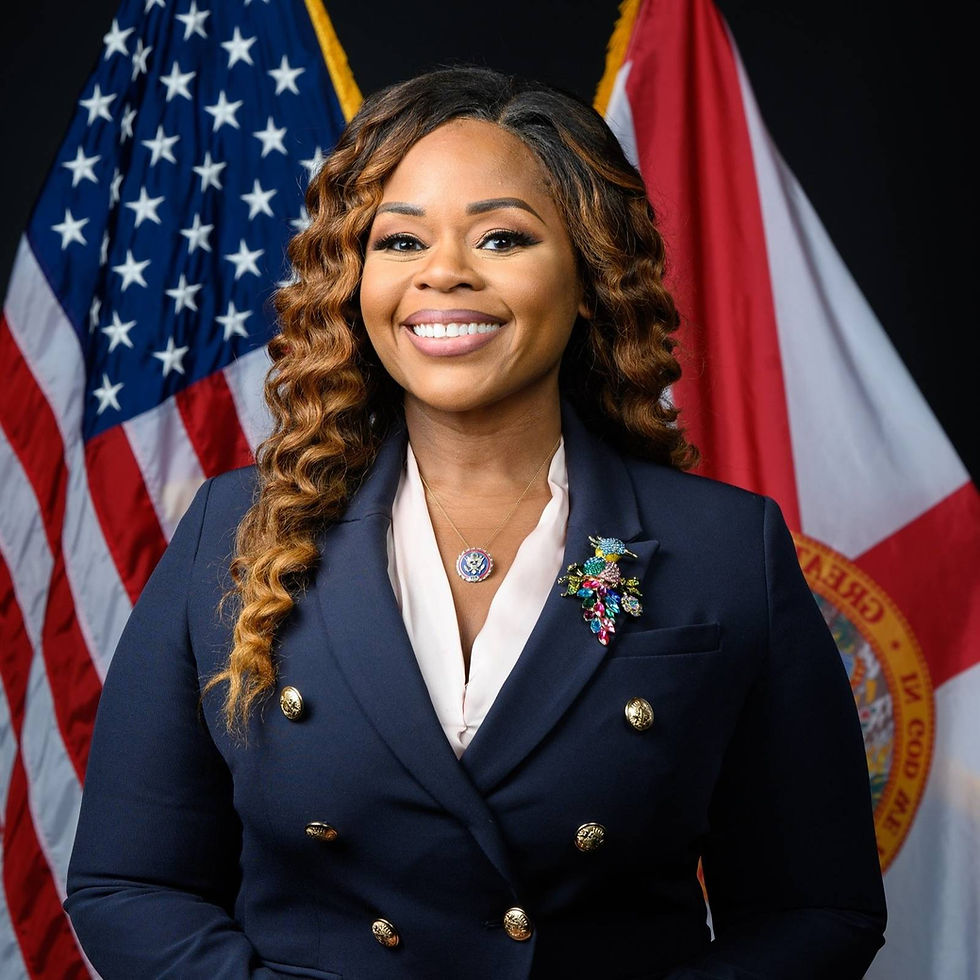President Jimmy Carter Passes at age 100
- Staff Report

- Dec 29, 2024
- 3 min read
Updated: Dec 31, 2024

Former President Jimmy Carter, the 39th president of the United States and a Nobel Peace Prize laureate, died Sunday at his home in Plains, Georgia. He was 100, making him the longest-lived president in U.S. history.
Carter's death was confirmed by his son, James E. Carter III, who announced that his father passed away peacefully, surrounded by family.
President Joe Biden and First Lady Jill Biden expressed their condolences in a statement, calling Carter "an extraordinary leader, statesman, and humanitarian." They noted that over six decades, they had the honor of calling him a dear friend, and that millions of people throughout America and the world who never met him thought of him as a dear friend as well.
Born on October 1, 1924, in Plains, Georgia, Carter graduated from the U.S. Naval Academy in 1946 and served in the Navy until 1953. He returned to Georgia to manage his family's peanut farming business before entering politics. Carter served as a Georgia state senator from 1963 to 1967 and as the state's governor from 1971 to 1975. He won the presidency in 1976, defeating incumbent Gerald Ford.
During his presidency, Carter was known for his efforts in international diplomacy, including brokering the Camp David Accords between Egypt and Israel in 1978. He also faced domestic challenges, such as the energy crisis and high inflation. After losing his re-election bid to Ronald Reagan in 1980, Carter dedicated himself to humanitarian work, founding the Carter Center in 1982 to promote human rights and democracy worldwide. In 2002, he was awarded the Nobel Peace Prize for his efforts in finding peaceful solutions to international conflicts and advancing democracy and human rights.
Carter's post-presidential years were marked by his commitment to public service, including his work with Habitat for Humanity and his efforts in disease eradication. He remained active in public life well into his 90s, often speaking on issues of social justice and human rights.
In February 2023, Carter entered hospice care at his home in Plains, choosing to spend his remaining time with family. His wife of 77 years, Rosalynn Carter, passed away earlier this year.
Carter had a complex but generally positive relationship with the Black Community.
Carter grew up in Plains, Georgia, during the era of segregation. His personal experiences with racial inequality influenced his views on civil rights. As a child, Carter's family employed Black workers, and he was aware of the disparities they faced.
During his time as a state senator and later as governor of Georgia (1971–1975), Carter championed racial integration. He notably declared in his inaugural address as governor, "The time for racial discrimination is over," signaling his support for desegregation and equality.
His emphasis on equality helped him gain significant support from Black voters, particularly in his 1976 presidential campaign.
Carter appointed a record number of Black officials to high-ranking positions, including Andrew Young as the first Black U.S. ambassador to the United Nation
Carter's presidency was marked with several factors that benefited Black Americans including:
Civil Rights Enforcement: Carter strengthened the Department of Justice’s Civil Rights Division and increased enforcement of desegregation orders in schools.
Economic Initiatives: He promoted programs aimed at alleviating poverty, which disproportionately affected Black Americans, such as urban development and small business assistance.
Voting Rights Act Extension: Carter signed the 1975 Voting Rights Act extension, which continued protections for Black voters and expanded rights for other minority groups.
Carter’s presidency coincided with economic challenges, including inflation and unemployment, which hit Black Americans particularly hard. This led to some disillusionment among his Black supporters. And; while he advocated for racial equality, systemic change was slow, and many in the Black community felt more aggressive action was needed to address deep-seated racial and economic disparities.
Ultimately Carter is remembered as a president who genuinely cared about civil rights and racial equality. His administration laid groundwork for future progress, and his post-presidency humanitarian efforts, including housing initiatives and global health programs, reinforced his positive standing in the Black community.
Plans for a state funeral in Washington, D.C., are underway, with public events expected to be held in Atlanta and his hometown of Plains. Details will be announced in the coming days.
Carter is survived by his four children, multiple grandchildren, and great-grandchildren. His legacy as a champion of human rights and a dedicated public servant will be remembered worldwide.



















Comments